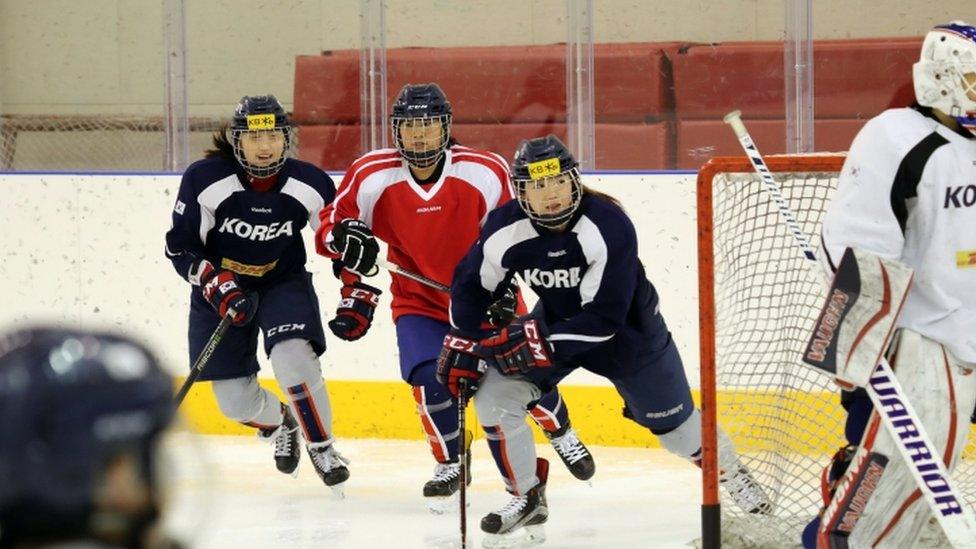North Korea cancels joint cultural performance with South
- Published

A joint women's ice hockey team has been one of the agreements for the Games
North Korea has abruptly cancelled a cultural event scheduled to be held jointly with the South, Seoul has said.
Set for 4 February at Mount Kumgang in the North, it had been part of a series of events ahead of the South's hosting of the Winter Olympics in PyeongChang.
The events, and other links during the Games, were seen as a thawing of ties.
A telegram from the North reportedly blamed "biased" and "insulting" media coverage in the South. South Korea said the decision was "regrettable".
It said the North should uphold all the agreements that had been made.
Art performances and a taekwondo demonstration were among other events agreed with the North.
The South's unification ministry, quoted by the Yonhap news agency, said the North was also angry at media reports about a possible military parade it might hold on 8 February, a day before the opening of the Games.
There have been concerns that the links between the Koreas could breach international sanctions in place against the North over its nuclear programme.
The South had earlier said it would not pay airport fees to fly its skiers to Mount Kumgang as this would violate the sanctions.
The two Koreas held rare high-level talks last month, leading to a rapprochement over the Olympics.
It was agreed the nations would march under a unified flag, and that there would be a combined women's ice hockey team, although it was reported on Monday the nations' players were suffering linguistic problems over differences in hockey terminology.
There will be 10 other Northern athletes at the Games, taking place between 9 and 25 February, in sports including cross-country skiing and figure skating.
The North is also sending hundreds of delegates, cheerleaders and performers.
The talks which resulted in the agreement came after tensions on the Korean peninsula reached their highest point in decades.
North Korea has made rapid advances in its nuclear and conventional weapons programmes in recent years.
Its latest ballistic missile test, on 28 November, sparked a series of fresh sanctions from the UN targeting petrol shipments and travel.
Soon after, North Korean leader Kim Jong-un said he was "open to dialogue".